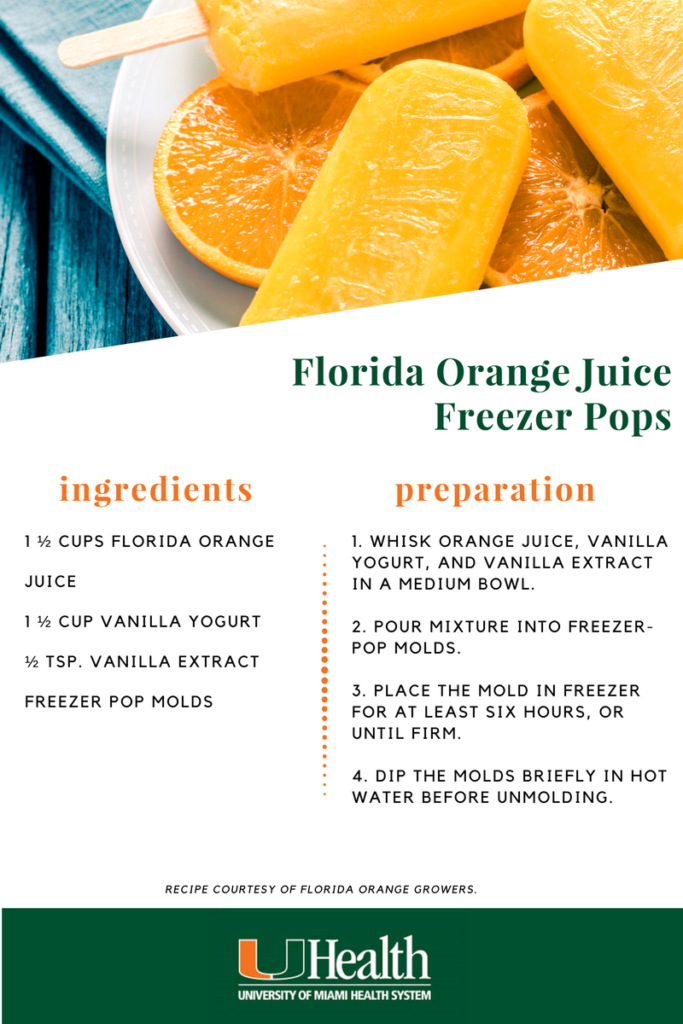Get Clear About Vitamin C

In the third of a five-part series focusing on vitamins, Sheah Rarback, a registered dietitian nutritionist with the University of Miami Health System, answers questions about vitamin C.
Vitamin C seems to be a superhero among vitamins. Why is that?
Sheah Rarback: I hesitate to call out one vitamin as “super” because all vitamins are necessary. Since your body cannot make vitamins, you need to get them from food. That is why I recommend nutritious foods as the best way to get vitamin C and other important nutrients.
Many foods contain C or are fortified with the vitamin. Is there any danger of developing a deficiency?
Rarback: In the last National Health and Nutrition Examination Survey, vitamin C deficiency was found in seven percent of the population. Smokers and low-income individuals are at highest risk. Signs of inadequate intake include easy bruising, bleeding gums, slow-healing wounds, rough skin, and dry, splitting hair.
Most people look to oranges or orange juice to get more vitamin C. What other foods would you recommend?
Rarback: Vegetables are a great source, as well as having other health-promoting nutrients. Adding dark green vegetables such as kale, spinach, broccoli, and brussels sprouts to your diet boosts your vitamin intake.
Many people have trouble getting their children and elderly parents to eat a healthy, balanced diet. Would you recommend vitamin supplements?
Rarback: The amount of vitamin C we need is so easily met with foods most children and adults enjoy, so I encourage people to meet their vitamin C requirements with food. If that is not possible, a supplement can provide the necessary levels of vitamin C.
Can there be “too much of a good thing”? Doesn’t the body eliminate excess amounts of this water-soluble vitamin through urination?
Rarback: The body eliminates excess C. Therefore, toxicity is not as concerning as it is with fat-soluble vitamins. However, you waste money taking high doses since your body doesn’t use the excess. And some people do get diarrhea when they take very high amounts of this vitamin.
The Takeaway
Vitamin C boosts immunity, promotes heart, eye, and prenatal health, and is essential to healthy connective tissue. The best sources of C come from food, especially fruits (citrus, guava, kiwi) and dark green veggies (kale, spinach, broccoli, brussels sprouts). If you find yourself with frequent bruises, bleeding gums, rough skin, dry hair, or slow-healing wounds, you may be deficient. Don’t exceed the RDA – excess C is eliminated by the body and may cause diarrhea. Smokers, however, need more than non-smokers.

Nancy Moreland is a contributing writer for the UMiami Health News Blog. She has written for several major health care systems and the Centers for Disease Control and Prevention. Her writing also appears in the Chicago Tribune.
Tags: healthy eating, immune booster, nutrititon, Sheah Rarback, vitamin C, vitamins
